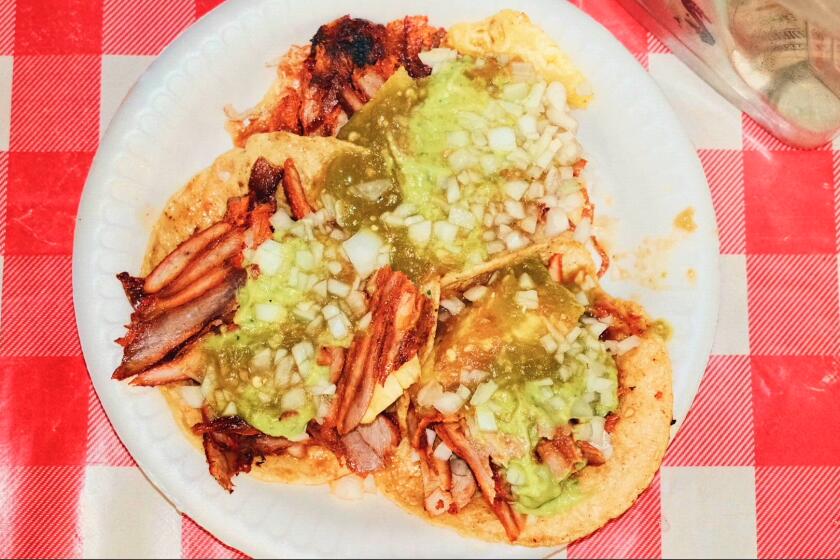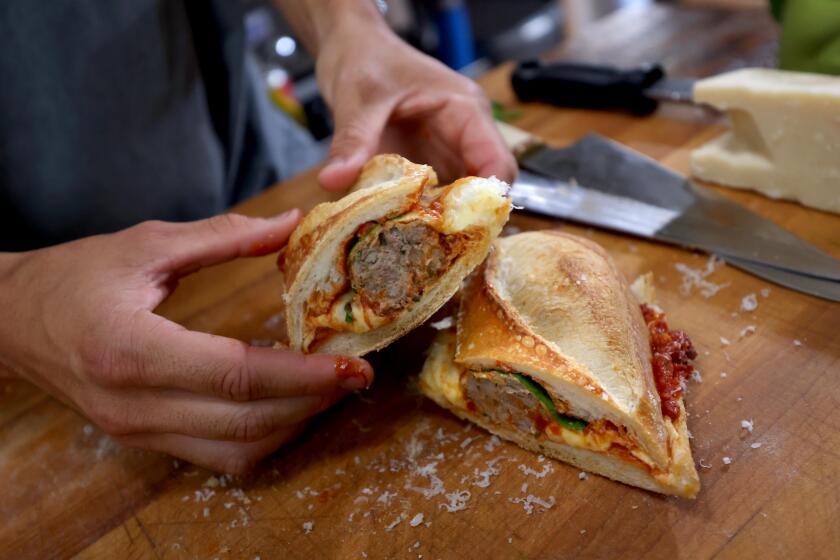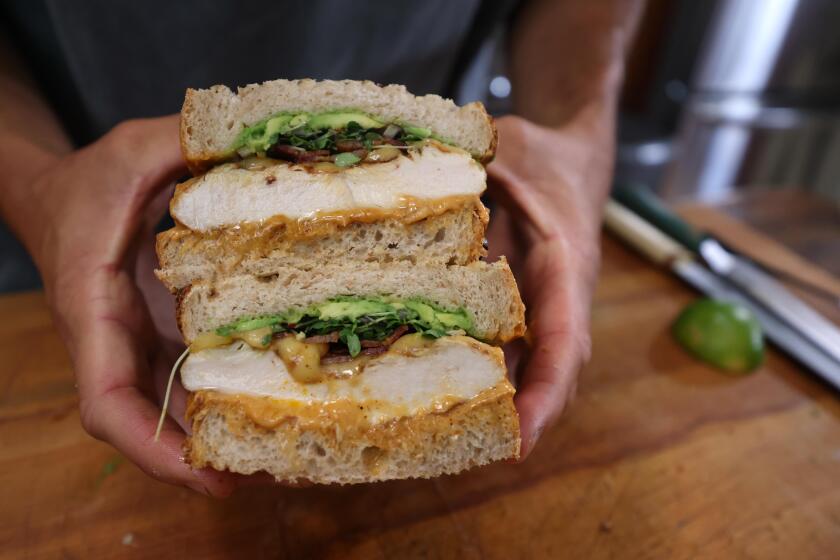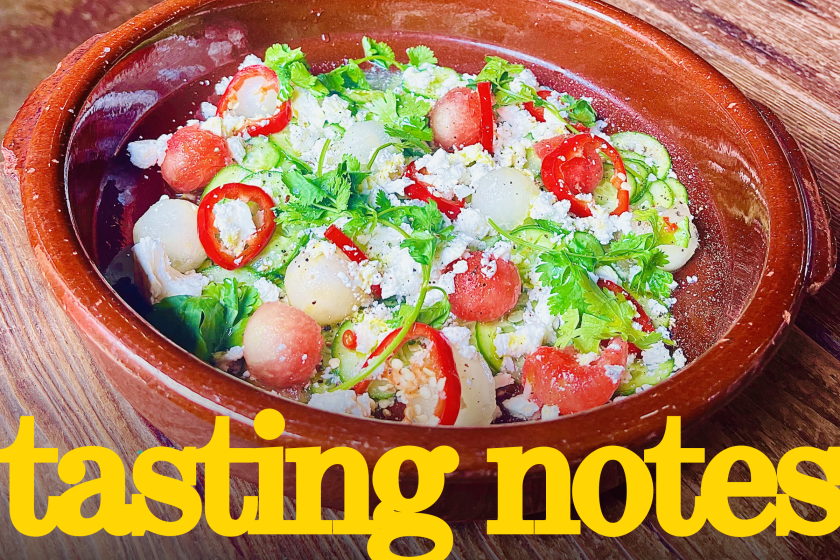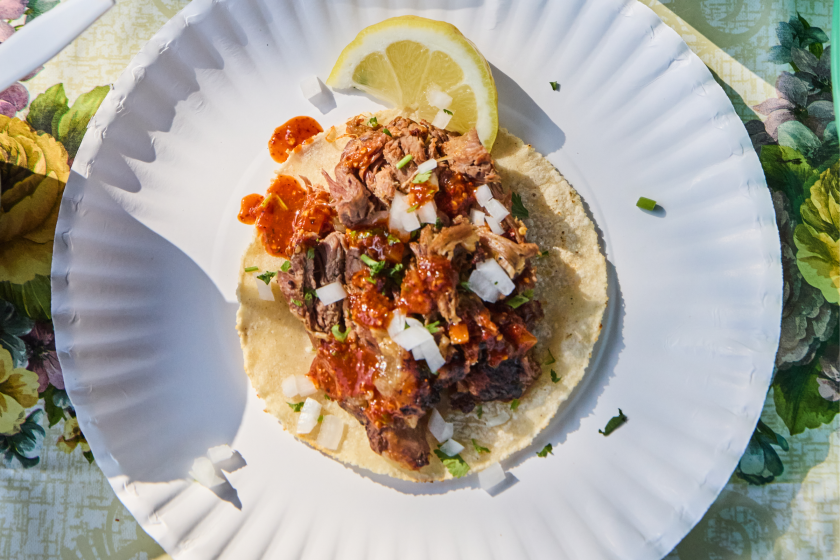Melons’ sweet spot, amber waves of grapes
Last Chance
Fresh Dates: Granted, we’re pretty spoiled about dates at Southern California farmers markets. The stuff most of the country knows -- rock-hard little pebbles -- just don’t pass muster here. Even the driest of the dates we get would be considered incomparably moist anywhere else. But there’s fresh, and then there’s fresh. For a brief span in late summer/early fall, you’ll see market stalls adorned with strings of dates still on their stems. These take a little getting used to. In fact, they’re not moist at all. They’re crisp, almost like apples. And at first chew, they seem starchy as well. But as you keep eating them, a lovely honeyed sweetness builds in your mouth.
Bautista Organic Date Farm, Dates by Davall, Flying Disc Ranch, $3.50 to $4.50 per pound.
Sweet Melons: This year has been an exceptional one for melons of all kinds, but especially for rough-skinned melons such as cantaloupes and muskmelons. But how do you choose the sweetest? You probably know the basics: The netting should be raised; the background color should be golden; it should be clean where the stem is attached; there should be a powerful perfume. My favorite melon man, Neil Ims from Weiser Family Farms, showed me another trick I’d never noticed: On really sweet rough-skinned melons, there will be a slight cracking around the stem scar. So far, it’s worked every time.
Various growers, $1 to $1.50 per pound.
Thompson Seedless Grapes: What? Someone recommending Thompson Seedless? You bet. Though most of the grapes sold under that name are undistinguished, a well-ripened Thompson Seedless is a grape that will stand up to almost any other variety. It is honey-sweet with a haunting flowery quality. The trick is finding them. The thing to look for is color: Ripe Thompson Seedless grapes are not green; they are golden, nearly amber. You won’t find them this way in the grocery very often because when they get to this stage, the grapes tend to fall off the stem, which is messy for produce managers. But there are plenty of them at farmers markets, and at bargain prices. Another thing to look for is small size. Most people want big grapes, so farmers do various things to encourage that. Smaller grapes, though, are sweeter and more perfumed. Look for the ones called “naturals.”
Various vendors, $1 per pound; “Naturals” from Jack Balderama, $1.75 per pound.
-- Russ Parsons
More to Read
Eat your way across L.A.
Get our weekly Tasting Notes newsletter for reviews, news and more.
You may occasionally receive promotional content from the Los Angeles Times.







